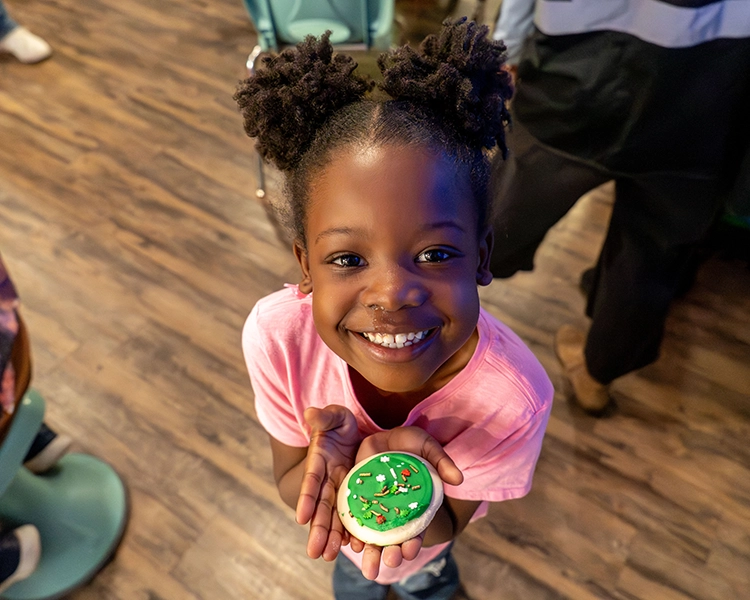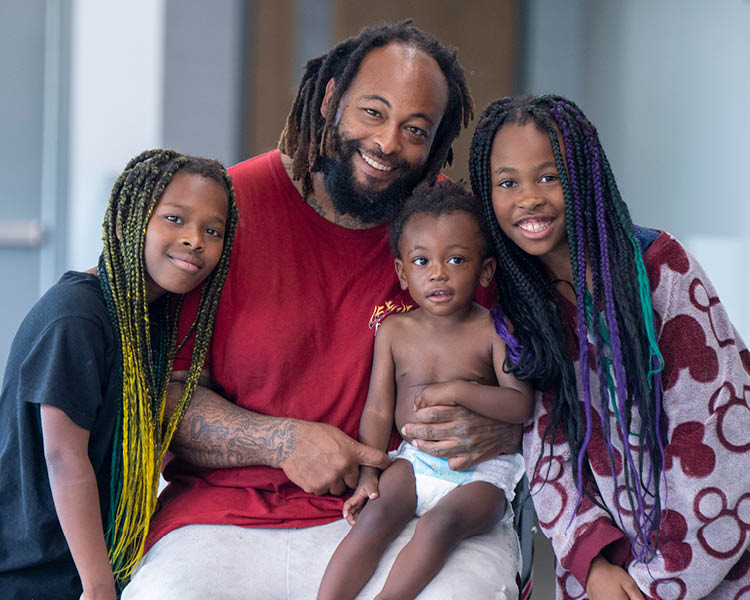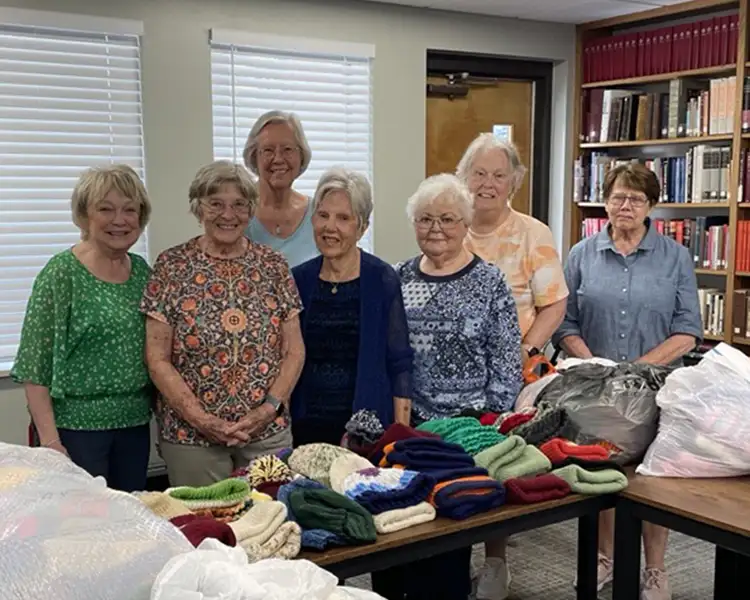It’s been one year since a state of emergency was declared in Denver following the outbreak of COVID-19 and the world turned upside down. But, thanks to your kindness and support, Denver Rescue Mission and people like Joseph who come to us for help are pressing on and finding silver linings in the midst of adversity.
Every day since the start of the pandemic, Mission staff members receive an email with the names of frontline employees to pray for, along with a request to pray for volunteers and guests. We believe that through the power of prayer, we have been able to persevere this past year—a year in which hope, strength and resilience have taken on new meanings.
Within a matter of weeks after the virus broke out in Denver, the Mission transitioned from its regular operations to running a new, temporary shelter for 765 men at the National Western Complex (NWC). This large space allowed for ample social distancing where frontline staff averaged 27,000 steps a day.

Tracy Brooks, senior director of emergency services who oversees the Mission’s shelter operations, said that the majority of the team members she started with before the pandemic stayed onboard, faithfully rising to every occasion. “I think my frontline staff is pretty incredible and every day show up and do the hard things and work with people going through really hard times,” she said.
As our staff responded to constant changes during the pandemic, they also had to help our guests process what was happening. “The reality of working with the guests is that what we’re feeling, they’re feeling too,” Tracy said. “You have guests you are working with every day who are afraid. Their world has been turned upside down too.”
The Mission operated out of NWC until August and then opened two 24/7 shelters for men at the Denver Coliseum and 48th Avenue Center, where we served three meals three a day and offered restrooms, showers and storage for guests.
At all three facilities, the biggest feat was shifting to 24/7 sheltering, instead of just offering overnight shelter. This required more man hours, significant staffing increases, new case management and policy changes, and much more. But this feat resulted in many benefits.
“The first couple of weeks [at] National Western, I think all of us were blown away by how much [our guests] slept,” Tracy said. “They could sleep when they needed to sleep.”
Another benefit of 24/7 sheltering was the ability to provide reserved beds for guests’ entire stay since we had more space available. “With the same bed, they get to know the people around them and that gives them that additional sense of safety and security,” Tracy said.


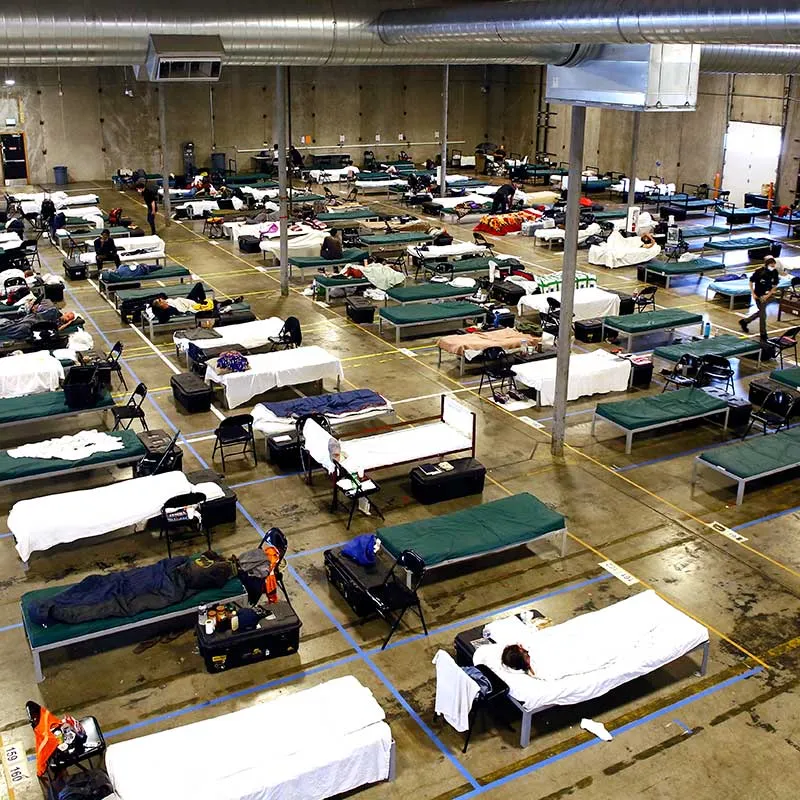
Joseph has been staying at the 48th Avenue Center since August and appreciates having an assigned bed.* “I’m familiar with the people I’m around, and it makes me more comfortable,” he said. “I really appreciate the security.”
According to Maslow’s Hierarchy of Needs, which is a foundational concept in social services, when individuals lack in basic needs such as food, water and sleep, it’s hard for them to think about anything else.**
“You need nourishment; you need rest; you need comfort,” Joseph said. “When you know you have somewhere to stay—what a great feeling.”
Maslow’s Hierarchy of Needs
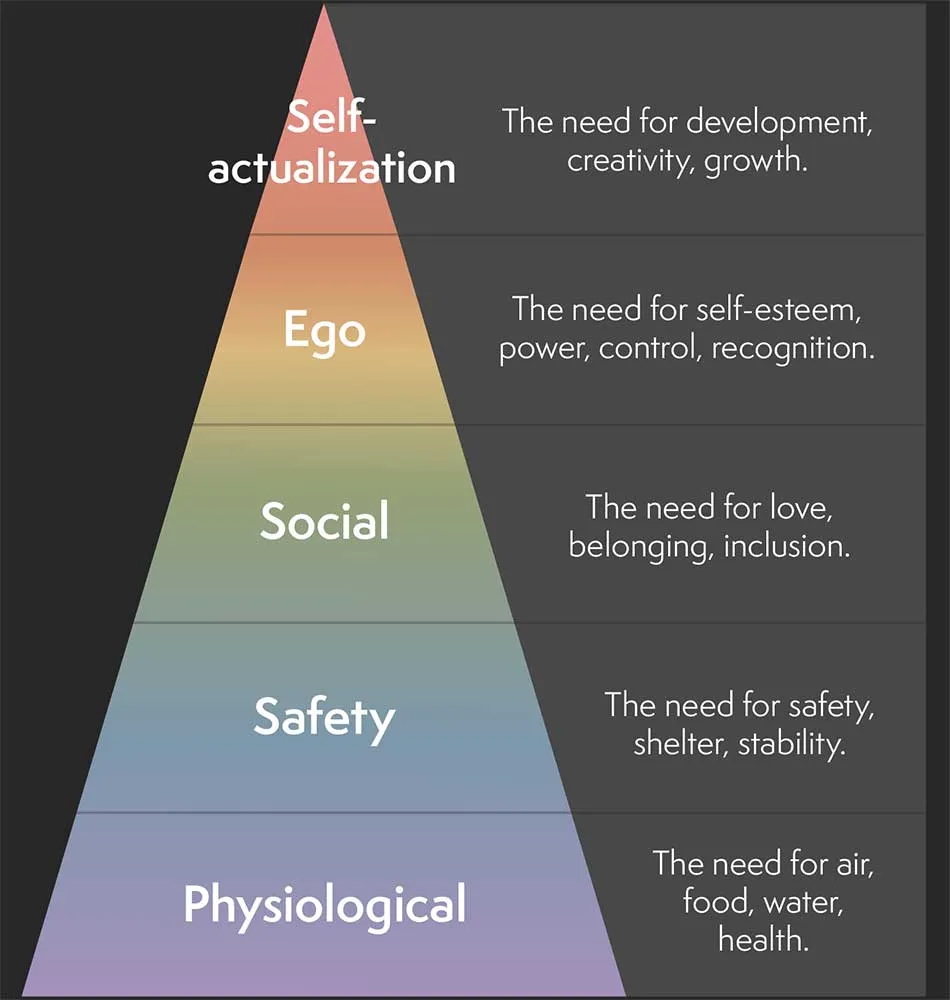
Through the Mission’s emergency services, we meet guest’s basic needs, reflected in the bottom two tiers of the hierarchy, which gives them the capacity to focus on the needs reflected in the top three tiers.
In addition to meals, shelter and showers, the Mission has been offering case management services at 48th Avenue Center to help guests make tangible plans to exit the shelter system and secure stable housing. Since August, 86 percent of individuals have kept their appointments with case workers. “We’re seeing that as people’s basic needs are met, they are willing to engage and talk about solutions,” Tracy said. “We have continued to work with individuals [to] get them housing-ready.”
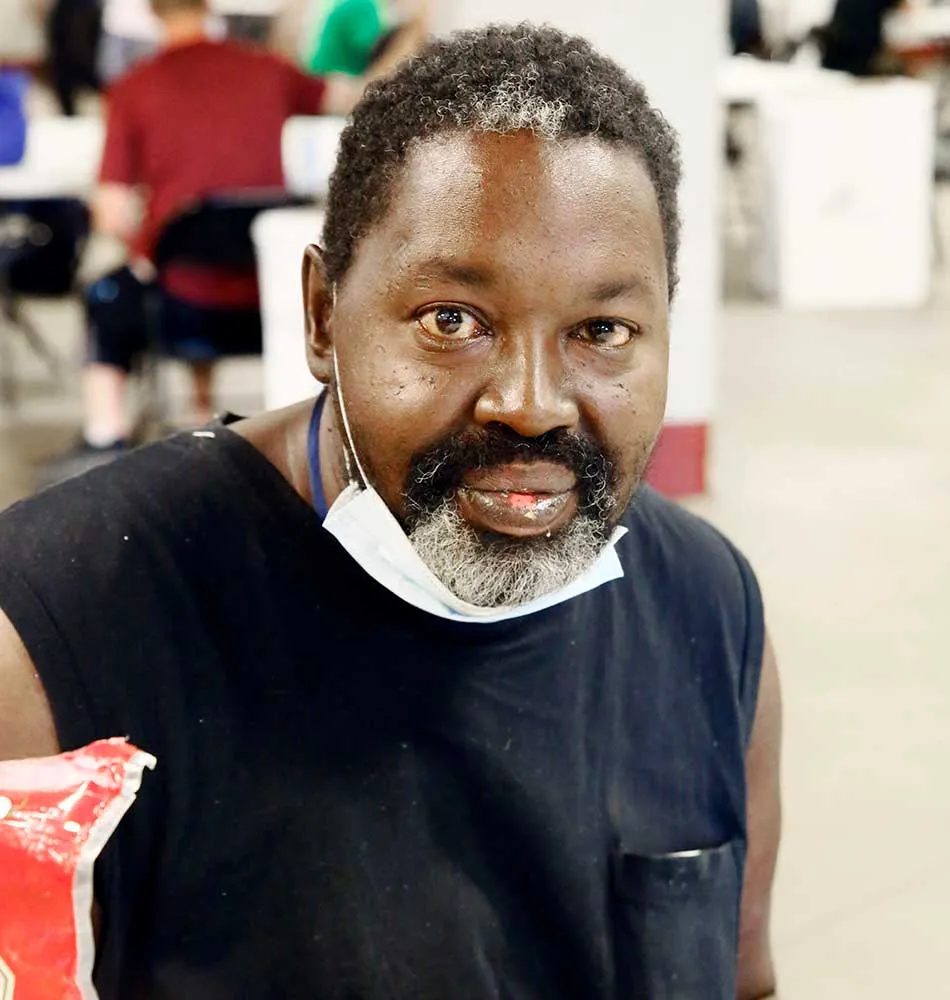
“I’m thankful to have a roof over my head, meals and somewhere to sleep [during the pandemic]. I’ve just had to be strong and pray. I reached out to God, and I know my patience is like me climbing a mountain. I know it’s hard for me to make it, but God’s going to pull me up.”
– Joseph, 48th Avenue Center guest
For Joseph, the Mission has been his only place of refuge while he has been in and out of the hospital over the past year due to medical complications.
“[The Mission] has helped me through all my medical crises,” Joseph said. “If I need help with something, they’re always there.”
Recently, Joseph’s case worker helped him obtain his birth certificate so he can pursue his goal of settling in to a place of his own for the first time in 15 years.
Along with many of our guests, Joseph has also been seeking God during this difficult time. “One thing that I have noticed is that everybody’s faith has grown,” he said. “You see a lot of people in here with Bibles—reading every day. They got back to the one thing that’s always there, and that’s God. That’s the one thing you can always count on.”
While the pandemic has brought about many changes and challenges, it has also provided silver linings for people like Joseph. And, just like Joseph, we will continue to count on God every day and put our trust in Him to press on.
*Name changed to protect guest’s identity
**Source: simplypsychology.org/maslow.html
We made it through a year since the pandemic hit Denver, but the battle is not over. Your support can mean life or death for people like Joseph who are especially vulnerable.
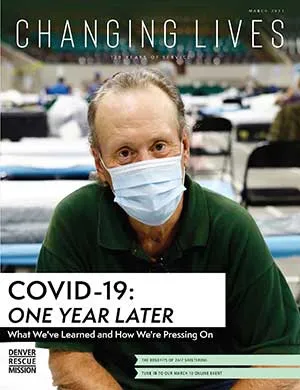
Download Full Newsletter
- March Online Event
- Letter From our CEO
- The Mission in My Words
- Core Strategies




